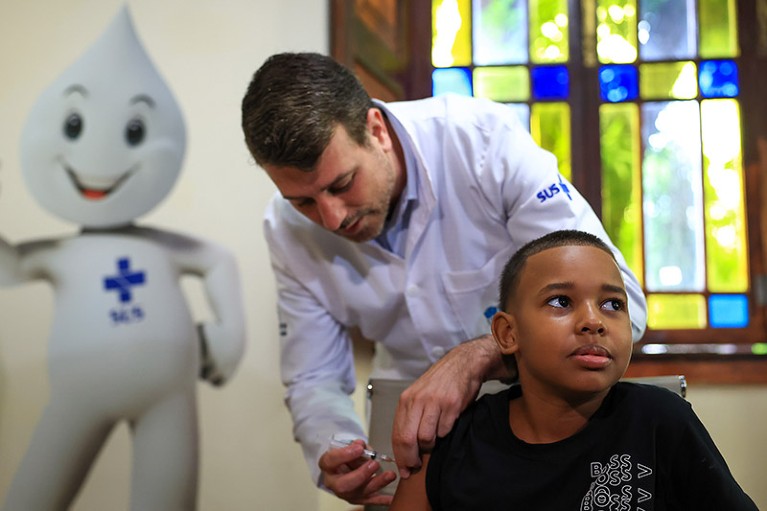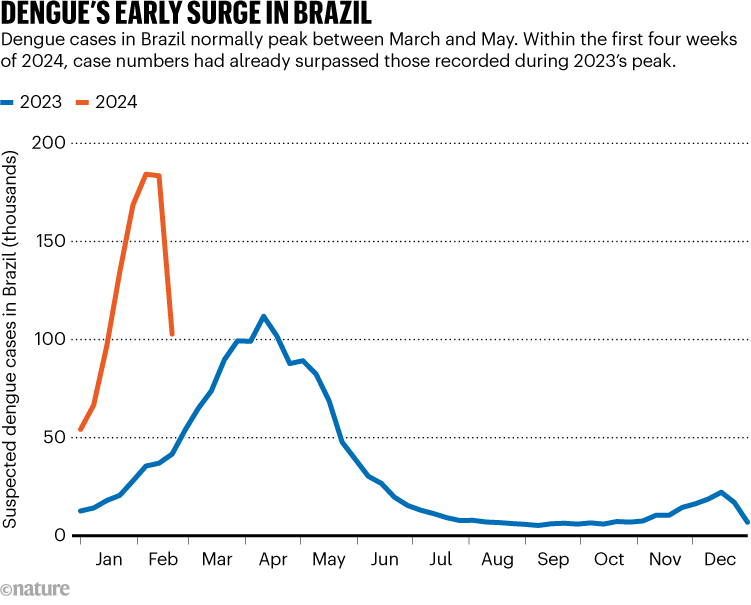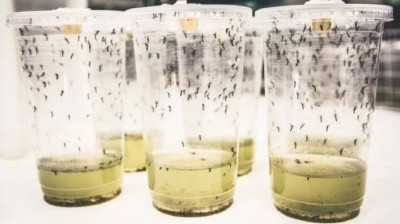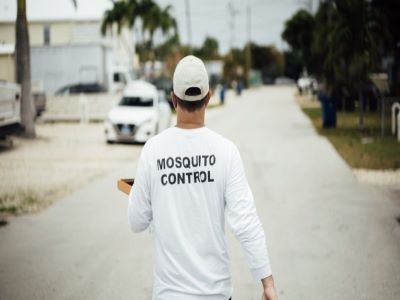
A dose of the Qdenga vaccine against dengue is given to a young recipient in Brazil.Credit: Buda Mendes/Getty
An explosive rise in dengue cases in Brazil has health authorities on edge. In the first two months of 2024, the country registered more than one million cases of the mosquito-borne disease. That’s a record for this period — and Brazil’s dengue cases normally peak between March and May (see ‘Dengue’s early surge in Brazil’).
Factors such as climate change and rapid urban growth are fuelling the surge, which has already killed at least 214 people this year. In response to the crisis, Brazil has become the first country to roll out a public vaccination campaign against dengue.
The campaign is an important addition to the fight against dengue, scientists say. But they warn that the effort is too modest to solve the immediate crisis. “Very few people are being vaccinated. To have an impact on the rates, we would need to have mass vaccination,” says Ana Lúcia de Oliveira, an infectious-disease specialist at the Federal University of Mato Grosso do Sul in Campo Grande, Brazil. And even widespread vaccination won’t defeat the disease unless basic sanitation problems are addressed, researchers note.
A disease on the rise
Table of Contents
Dengue is a viral disease transmitted by the Aedes aegypti mosquito, which thrives in hot and humid conditions, laying its eggs in stagnant water found in everything from discarded tyres to flower vases. There is no specific treatment for the disease, which can cause fever and body aches and, in severe cases, internal bleeding and death.

Source: Ministry of Health of Brazil
Rising temperatures associated with climate change have contributed to an expansion of the disease into the southernmost region of Brazil, which was once too cold for A. aegypti. An El Niño event that arrived in mid-2023 and is predicted to last until at least April is intensifying the heat and rainfall, further contributing to the surge, says Bárbara Valente, an epidemiologist at the Oswaldo Cruz Foundation in Rio de Janeiro, Brazil.
Mosquito paradise
But climate is not the only factor to blame for the surge. “The cities are growing and becoming paradise for mosquitoes,” says Marcia Castro, a public-health specialist at Harvard T.H. Chan School of Public Health in Boston, Massachusetts. Adequate sanitation infrastructure often fails to keep pace with the growth of Brazilian cities. Uncollected rubbish becomes a breeding ground for the insects, as does water stored by people who don’t have regular access to tap water.

How genetically modified mosquitoes could eradicate malaria
Furthermore, A. aegypti mosquitoes seem to be adapting to adverse conditions, says Joziana Barçante, a parasitologist at the Federal University of Lavras, Brazil. “We have been observing the presence of [A. aegypti] larvae where we previously did not find them,” she says. It is commonly understood that the mosquito prefers to breed in clean water, but studies show that it is now able to reproduce even in puddles and sewers1.
Limited natural immunity is also contributing to the surge. Dengue is caused by four distinct viral subtypes — DENV-1, DENV-2, DENV-3 and DENV-4. After several years during which the first two predominated in Brazil, the last two have recently returned. Many Brazilians are vulnerable to these subtypes, and so more likely to become infected.
Vaccine hopes
Brazil’s public-health system is administering a vaccine called Qdenga, made by Takeda in Osaka, Japan, that has an overall efficacy of 73% against symptomatic dengue. Results were more promising against DENV-1 and DENV-2 than for DENV-3. For DENV-4, the efficacy data are inconclusive.
Public distribution of the vaccine is currently limited to 521 cities, less than 10% of Brazil’s municipalities. The first stage of the campaign targets 10- and 11-year-olds, though health officials plan to expand it to children up to 14 years of age. That’s the age group most likely to be hospitalised other than elderly people, for whom the vaccine is not approved. The limited campaign “will only protect those few people who have been vaccinated”, says Oliveira.

Modified mosquitoes reduce cases of dengue fever
Vaccine availability is a big challenge: Brazil’s Ministry of Health says it has acquired all of the doses made available by Takeda and that the quantity is limited by the manufacturer’s capacity. Another challenge is that complete immunization requires two doses, with a three-month interval between them, which might complicate vaccine adherence.
“The vaccine is not going to resolve the problem now,” says Castro. But she is hopeful about another vaccine, which hasn’t yet been approved, that is being developed by the Butantan Institute in São Paulo, Brazil. In a large clinical trial, it demonstrated an overall efficacy of 80% against symptomatic dengue with a single dose. But its effectiveness against DENV-3 and DENV-4 is unclear, because those subtypes did not circulate widely during the study period.
Virus-fighting bacteria
Among other technologies being explored to prevent dengue are modified mosquitoes carrying the Wolbachia bacterium, which reduces the insect’s capacity to transmit some viruses. Mosquitoes infected with Wolbachia have been released in several cities in Brazil, resulting in a local decrease in dengue cases.

First genetically modified mosquitoes released in the United States
Last year, a non-profit organization called the World Mosquito Program announced plans to build a massive mosquito factory, in partnership with the Oswaldo Cruz Foundation, to release modified mosquitoes in many of Brazil’s urban areas over the next ten years. Construction is yet to start, but the plan is to start production by the end of this year.
For Valente, solving basic sanitation problems continues to be the essential step to overcoming dengue, with vaccines and other technologies as important auxiliary tools. “When you offer proper housing conditions, which includes access to clean water and proper waste collection,” she says, “you reduce the burden of many neglected diseases that could have even been eliminated in Brazil.”
